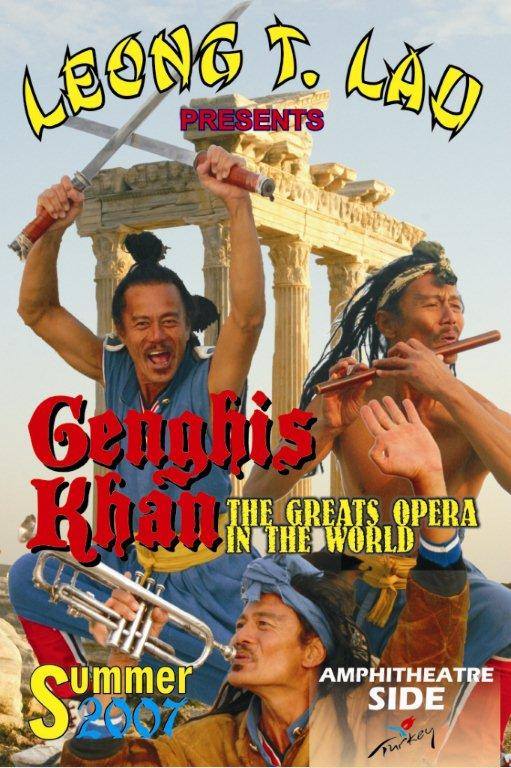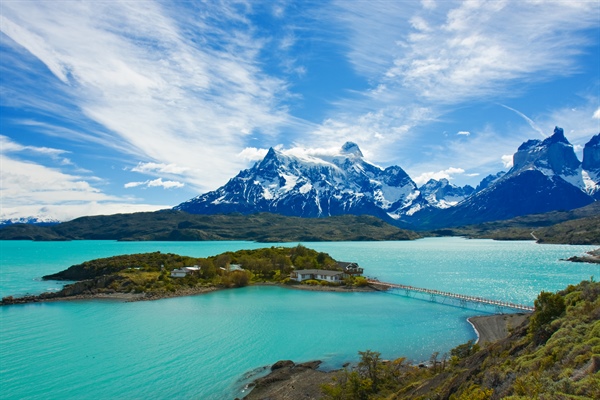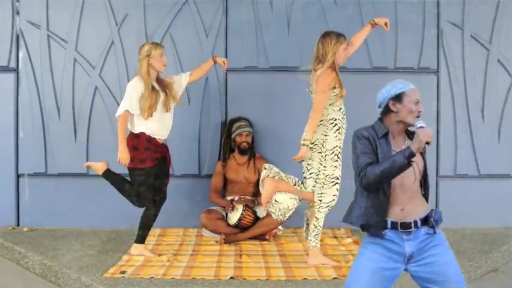Leong Lau: Virtuoso Musician of East West cultures
Leong Lau lived many lives in the avant-garde of six decades–first in Malaysia as a precocious musician, dancer, impressionist painter, and self-taught poet of nature with ten years in a Christian mission school; then in Australia as an engineering student, an itinerant Chinaman, musician, and cycling naturalist committed to the protection of the planet long before ecology became a popular concern. Touring Asia, Europe, USA and remote parts of the world, he achieved international fame as a musician of extra-ordinary performance competence and virtuoso abilities, an erudite and popular composer, a expressionist of half a dozen cultures, Asian and Western, with an original repertoire of music that integrated worldly and transcendental styles, as it contained classical structure and free improvisational in juxtaposition, sometimes called New Age, but more familiar to his fans as “killer funk”.
The following poster for performances at the Apollo Amphitheatre to capacity audiences during the Cultural Festival in south Turkey, indicates his widespread popularity, even in opera, where he danced, singing and playing music instruments, with a troupe of 19 actors and dancers, who toured Asia and Europe on bicycles, with his capable leadership targeting tourist destinations for the ready demand on quality shows:

ACCOMPLISHMENTS of LEONG LAU
Born in Malaysia of Chinese ancestry, Leong Lau studied Chinese Opera and played flute with the Chinese Community Orchestra. He came to Australia in 1969 where he completed the Bachelor of Engineering at Newcastle University, worked briefly as an engineer, then joined the Sydney Dance Company as a dance student and was trained in ballet, modern and improvisational dance. After five years, he enrolled at the Sydney Conservatoire of Music where he studied professional music performance and composition, and then played concert flute with the Sydney Symphony Orchestra. He went to England, joined the Elizabethan Theatre Trust in Shakespearean training, 1982-86. He returned to Australia, choreographed the theatre performance at the Sydney Chinatown Mall Opening, where his compositions were played by members of the Sydney Symphony Orchestra, conducted by him.
He is a contemplative artist in musical expressions beyond known horizons, a lyricist of love and nature, an excellent instrumentalist of many wind, reed, strings and horn instruments; passionate on the natural symphonies of the wind, birds, water, and other sounds of the universe, which he weaves into a harmonyof multiple textures, a veritable expression of the soul in his sincerity, an erudite exponent and multicultural paragon of humanity. Long before the public woke up to the worldwide ecological crisis, Leong Lau was a leader on conservation of species, for he loved nature un reservedly, as in “Nature Reincarnate”.
A Tai Chi student from childhood, he blended the gentle flowing movements of Tai Chi into the dynamics of ballet and modern dance, with ethnic styles from such rare expressions such as the Bird dance of the Iban from the jungles of Borneo and the Animal dances of Aborigines in the Australian desert, integrating the dance choreography into the inspirational fusion masterpieces known for thirty wonderful years at top venues in Istanbul, Tokyo, London, Moscow, Zurich, Paris, and Brisbane.
His work is a spontaneous response of cultural aspirations and then to glorify its achievements. This marvellous view of the world is as an evolutionary sublimation of values, along with a deep ethical sense of “total responsibility,” which has ennobled Leong Lau’s character at a time when most people critically, euphemistically, and self-righteously supported the “degradation” of human values, when rock music was regarded as “sex, drugs, and rock and roll”, as can be deduced in “Hold it Out”.
Recognizing the best in East and West, he celebrated the best selected expressions in music and art in his creativity. A pioneer in international expressionism and the East-West integration of creativity, an early promoter of funk music and major leader in the entertainment industry of the 1970’s, 1980’s, 1990’s and 2000’s, he expanded the audience for music of high artistic and intellectual calibre, his performances of which were often accompanied by live lights shows, as by Roger Foley of LSD Lights, who now makes the multi-million dollar Sydney Harbour new year’s eve extravaganza, and with stage shows by dancers doing his unique Tai Chi choreography. Befriending many poets, thinkers, artists, musicians, journalists, workers, feminists, priests, nuns, prostitutes, politicians, bankers, dancers, and fellow-composers, he planned his performances from a kind of worldly competence unique among musicians, perhaps his studies in engineering helped in the technology support, which made his performances memorable. He collaborated with musicians all over the world, assisted many before they became famous, and supported small groups with some of his finest work, like “Deep in the Jungle”, while at the same time being humble to accolades made extensively by audiences wherever he performed. The influence of his mother’s church upbringing helped motivate his promotion of many songs with spiritual overtones, with pentatonic scales reminiscent of the ancient songs as those of China and Japan. His lifelong absorption and interpretation of Asian and European cultures advances the East-West integration of Beethoven, Chopin, Bach, Paganini and Verdi into more accessible compositions, as in “Salem Abdullah”. Leong Lau’s music of infinite love, both erotic and spiritual, earthy and transcendent, revealing euphoria in realism of practical living as in “City Bleus, like dust on my shoes”, has changed many minds and many lives.
Church choir singing, classical piano training in childhood, and his band which played early Ventures, Beatles and Rolling Stones songs, he grew up with extravagant repressions; and with precocious talent, he learned and created as he wished, an uninhibited adventurer who always knew the enticements of music, especially by those loved the psychedelic undertones of the 1960’s and 1970’s .
Upgrading his performance to theatre, he joined the Elizabethan Theatre Trust at Strafford-Upon-Avon, where he trained at directing and began producing dance theatre to performances at Singapore’s Victoria Theatre and the Putra Theatre in Kuala Lumpur, Malaysia .
He approached the Brisbane City Council (BCC)and received the endorsement of Councillor Hon. Helen Abrahams, for the Theatre by the Homeless, a musical structured like the world’s most famous opera, Aida by Verdi, performed with Aboriginal participation at the Musgrave Park festival organised by BCC in 2013.
There are those who find him more interesting as a personality or thinker than as a musician. But while emphasizing that his original music is fundamentally vision, Leong Lau is as devoted to craftsmanship as were other master composers. Much of his music is intellectually and stylistically complex, requiring serious involvement with natural sounds and thought, but no more so than Stravinsky’s, Mozart’s, or Schubert’s, as in “Flight of the Phoenix”. On the other hand, much of his compositions are so direct and personal that he seems to be speaking to us in the heart, or on the beach overlooking the Pacific, or in a Chinese garden.

His work from beginning to end embodies a contemplative way of interacting with people. Leong Lau’s wonderful life was full of discoveries from many music adventures, as he happily admits; and his amazing compositions depict how all beings are created, transformed, and united in love, with love, care and understanding; how we live in universal community, human and cosmic, without usually knowing it; and how human life can be liberated through a uplift in consciousness, as in “One Dimensional Man”, the song title coinciding with his bedtime reading of the same title by the famous philosopher from Harvard University on technological rationality, Herbert Marcuse, whose worldview revitalizes and ennobles the human spirit, dangerously threatened by pathological military, technological, political, and corporate regimentation that toys with ecological disaster and nuclear annihilation. Denouncing the Social Lie that depersonalizes and destroys, Leong Lau offers an alternative way, in musical expressions, of waking up to the interacting plenitude of creative existence, in a spiritual tradition going back to his Christian upbringing of truth, love, and freedom.
In his personal campaign for better environmental awareness globally, he is in production of a television series for cable network broadcast, showing the effects of radioactive contamination on the evolution of mud crabs into monsters, the size of skyscrapers, intent on the destruction of humanity for domination of the world, but for the resistance by the folk hero Monkey from China, whose futile fight against the monster crabs, which regenerate their limbs whenever Monkey breaks them with kungfu prowess, until a scientist discovers the herbal formula to reverse the evolutionary growth, thus called Save Planet Earth, the intrepid cast shown below:
